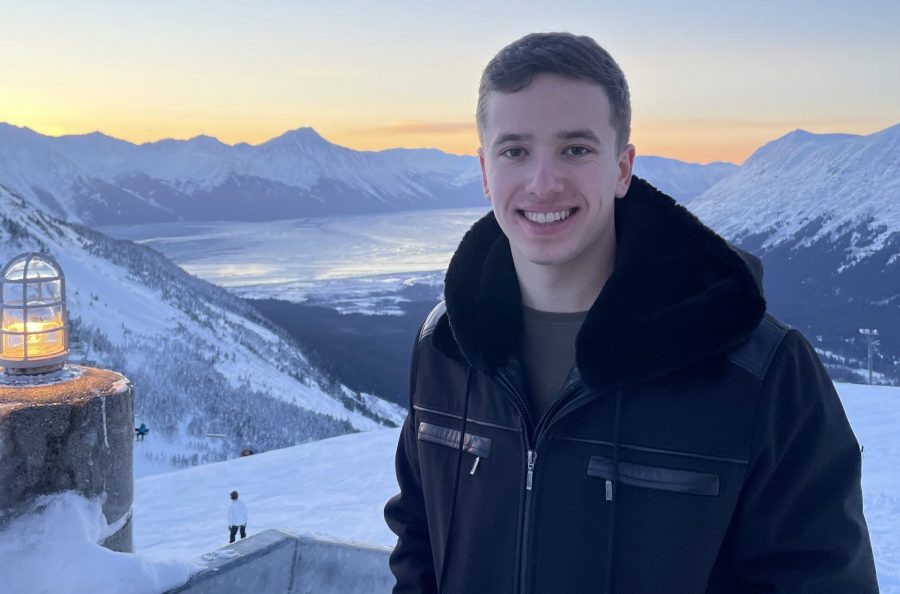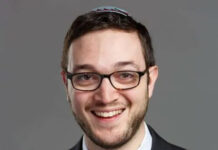 The roots of Jack Green’s family in Alaska go back to 1922, when his great-grandfather left Galicia, Poland, made his way across Europe and eventually settled in the American territory. For 100 years now, the Greens have been in the fur business in Alaska.
The roots of Jack Green’s family in Alaska go back to 1922, when his great-grandfather left Galicia, Poland, made his way across Europe and eventually settled in the American territory. For 100 years now, the Greens have been in the fur business in Alaska.
As Green, a senior at American University likes to say, his great-grandfather “read ‘The Call of the Wild’ by Jack London and fell in love with it.”
Green, 21, is a finance major and a soccer recruit, having played throughout college (“I’ve played since I can walk,” he says). He competed twice in the Maccabi Games in Israel, most recently this year.
In Anchorage, where he grew up, his family helped start a Chabad House, where Green went to Talmud Torah four times a week and Hebrew school on Sundays.
In the District, he has been active with Chabad Lubavitch of the AU Community.
What was it like growing up in Anchorage?
I always like to make the comparison that Alaska feels like a Jewish community. Everyone knows each other, and is always supportive and there for each other. Many people who live there aren’t from there originally so they all become family. The Jewish community is even smaller. I would always joke that my best friends in shul were either 2 years old or 70.
Did you play soccer indoors or outdoors? Were you always competitive in the sport?
I grew up playing soccer in my basement, and that’s where I honed my ball skills. Alaskan winters meant playing indoors from October through April and outdoors during our beautiful summers. I was always competitive in the sport and made a life-changing decision moving to Portland, Ore., alone when I was 16 to pursue playing at a higher level. Once I committed to American University, I returned home to graduate with my friends.
Tell us about the family business … and a surprise visit by Golda Meir.
The fur business is a very unique business to grow up in. I have worked at the store since I was a kid and still work remotely because I love it. We are constantly adapting and keeping up with new styles and colors, and traveling to different fashion shows around the world. While we are physically in Alaska, our customer base is worldwide, and we meet people from all walks of life.
When [Israeli leader] Golda Meir needed a place for a kosher meal on a stopover en route to East Asia, she ate by my family in their apartment above the store in the mid-1960s. The picture is now displayed in the Alaska Jewish Museum.
How have you adapted to Washington, D.C.?
Despite growing up in Alaska, I am well-adjusted to city life from visiting my mom’s family in the East Coast, and traveling for soccer and leisure. I like living in an urban setting because everything I need or want to do is close by. D.C., in particular, is a big small city, which makes it feel a little like home.
Where do you see yourself living after this, and how does Judaism fit into the picture?
I think I will stick around the East Coast for a bit, as it gives me a better opportunity to meet a nice Jewish girl than Alaska does. If I go back to work in the family business, I would move back to Alaska, but I could see myself living in a lot of places. Judaism has always been a focal point in my life, and that won’t change.
What will you miss most about college life?
Being a student-athlete and all the amazing people I have met. I learned a lot about myself these last four years and have watched myself grow as a person. Because of COVID, I get an extra year of soccer eligibility, so I may pursue a master’s degree and stick around the college scene for one more year before hopefully playing a little pro ball. As a member of the “Frozen Chosen,” I am honored to have had the opportunity to represent Alaska and the Jewish people on and off the field. In my next endeavors, I hope to do the same.
Carin M. Smilk is editor of Baltimore Jewish Times.





